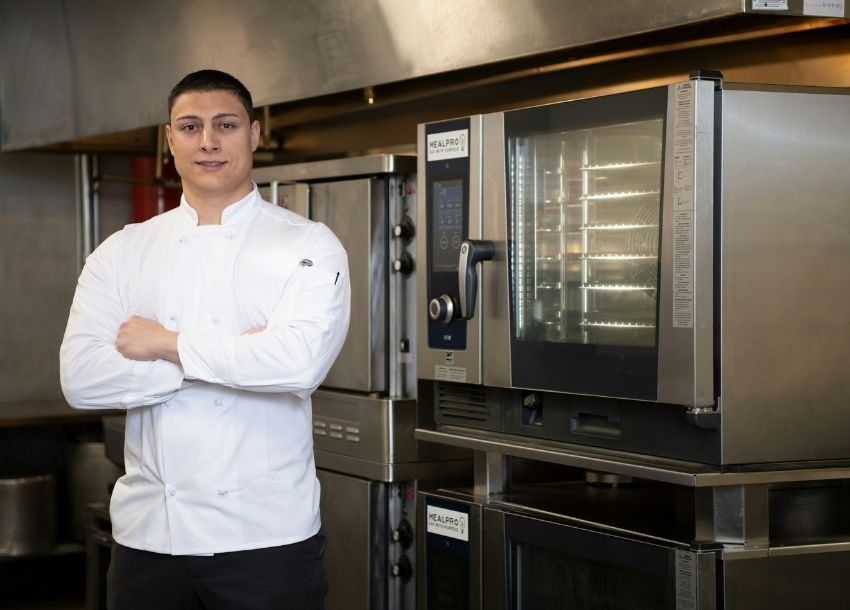Why Mental Health in Hospitality is Shaping Chef Recruitment

Your approach to recruitment can no longer ignore mental health in hospitality. For years, kitchens were seen as high-pressure environments where long hours and relentless service were part of the deal. Today, the conversation has shifted. Candidates are actively considering mental health support when choosing where to work, and employers who fail to adapt risk losing talent to competitors that promote balance and wellbeing.
This blog explores why mental health in hospitality is now a defining factor in chef recruitment – and how employers can respond.
Why mental health in hospitality cannot be ignored
The hospitality industry has one of the highest rates of stress-related turnover. Reports highlight that long hours, unsociable shifts, and demanding service contribute to higher-than-average levels of anxiety, depression, and burnout among chefs. Employers are seeing the impact:
- Rising turnover costs linked to burnout.
- Growing media focus on wellbeing in hospitality.
- Post-pandemic staff shortages pushing candidates to be more selective.
Recruitment today isn’t just about pay and progression – it’s about culture. If your adverts and interviews don’t address wellbeing, many skilled candidates will simply look elsewhere.
The link between mental health in hospitality and recruitment
Employer brand
Job adverts and career pages are no longer judged only by salary or benefits. Candidates look for signs that a business values wellbeing – from balanced rota patterns to mental health policies.
Retention and attraction
A culture that addresses mental health in hospitality attracts stronger applicants and keeps them longer. Restaurants and hotels that ignore wellbeing struggle to retain staff, fuelling an expensive cycle of constant rehiring.
Changing expectations
Younger chefs in particular are less willing to accept a “that’s just how kitchens are” attitude. They expect support, fairness, and balance. Employers that adapt to this shift have a recruitment edge.
Practical steps employers can take
Promote balance in job descriptions
Avoid glorifying “70-hour weeks” or “thriving under relentless pressure”. Instead, highlight fairness, training, and supportive scheduling.
Highlight mental health initiatives
If you offer staff support programmes, free counselling, or an open-door policy with management, include this in your adverts. Candidates want to see evidence.
Train managers and Head Chefs
A supportive kitchen culture starts at the top. Training head chefs and managers to spot stress, encourage open conversations, and lead without intimidation is critical.
Build flexibility into rotas
Where possible, allow input into shift patterns, enable job-sharing, or ensure rest days after long runs of service. Small changes make a big difference to staff wellbeing.

Examples of recruitment practices shaped by mental health
Forward-thinking hospitality businesses are already changing how they recruit:
- Including wellness benefits in job adverts.
- Offering trial shifts that showcase culture, not just technical skills.
- Interview questions around work-life balance and support.
- Introducing wellbeing champions or named contacts for new hires.
These practices help reassure candidates that your commitment to wellbeing is part of your culture, not just marketing.
Common mistakes employers must avoid
- Ignoring mental health in recruitment messaging. Candidates spot the silence.
- Overpromising on wellness without following through. This damages trust and reputation.
- Failing to train managers, leaving culture unchanged.
- Treating mental health in hospitality as a trend instead of a long-term commitment.
Final thoughts
The future of chef recruitment is being shaped by mental health in hospitality. Employers that adapt their hiring practices to show genuine care for wellbeing will attract stronger candidates, reduce turnover, and build kitchens where talent wants to stay.
Supporting your team’s mental health isn’t just the right thing to do – it’s a competitive advantage. In today’s market, culture recruits as much as salary does.
–
FAQs
Why is mental health important in hospitality recruitment?
Because candidates increasingly choose employers that value wellbeing, not just pay. Ignoring it risks losing top talent.
How can employers show commitment to wellbeing in job adverts?
Highlight balanced schedules, support programmes, and management training. Use clear, credible examples.
Does prioritising mental health improve retention in kitchens?
Yes – supportive environments reduce burnout, improve morale, and cut costly staff turnover.
What mistakes do employers make around mental health in hiring?
They either fail to mention it, or make empty promises. Both harm employer brand.
How do younger chefs view mental health in hospitality workplaces?
As non-negotiable. Many will turn down roles if they feel the culture doesn’t support them.
Comments
Add a comment
Leave a Reply · Cancel reply
You must be logged in to post a comment.



